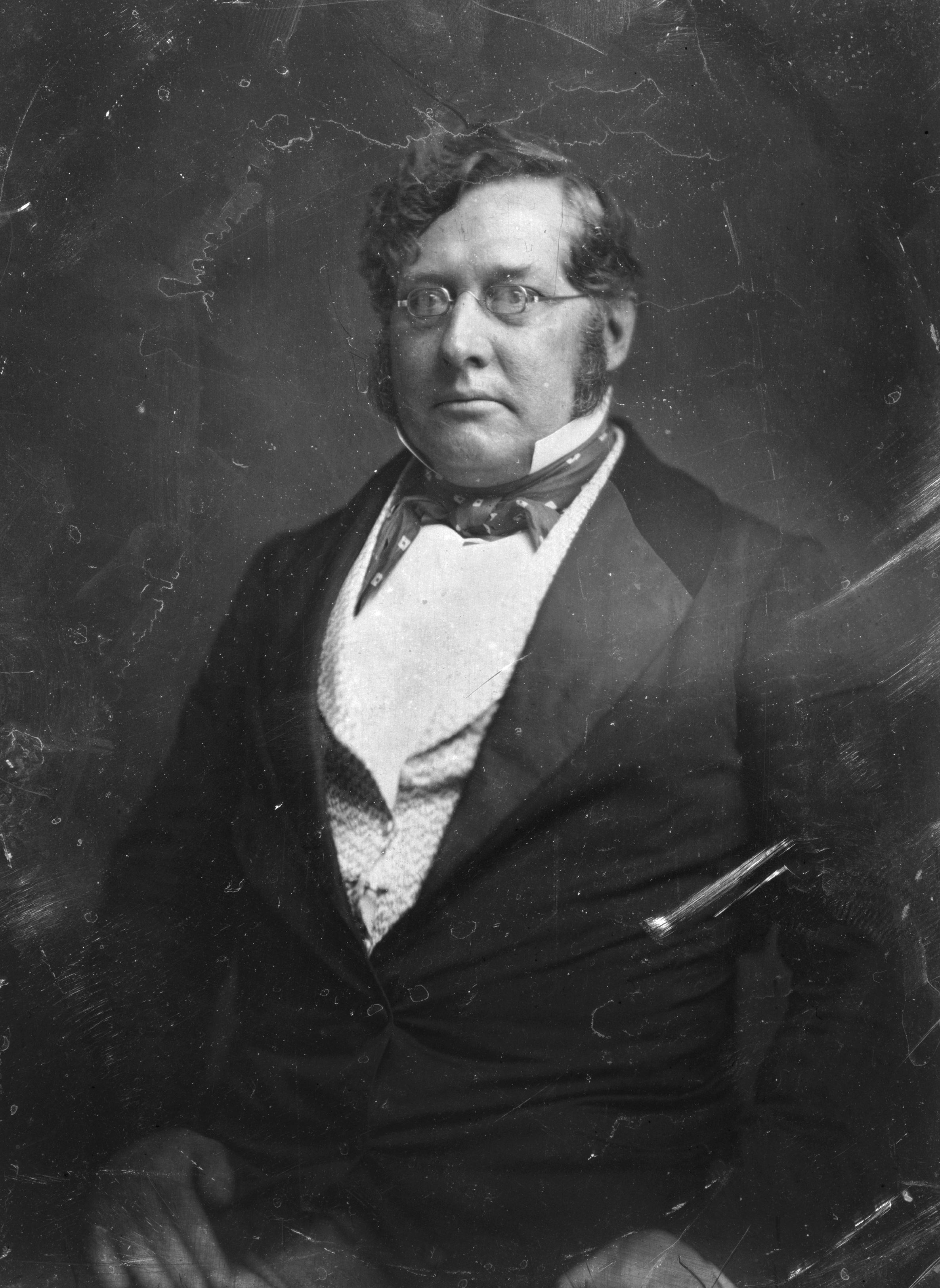- Thomas Pratt
Infobox Senator
name=Thomas George Pratt
jr/sr=United States Senator
state=Maryland
party=Whig, Democrat
term_start=January 12 ,1850
term_end=March 3 ,1857
preceded=David Stewart
succeeded=Anthony Kennedy
date of birth=birth date|1804|2|18|mf=y
place of birth=Georgetown, Maryland, U.S.
date of death=death date and age|1869|11|9|1804|2|18|mf=y
place of death=Baltimore, Maryland , U.S.
spouse=Adelaide MacKubin Kent
profession=Politician ,Lawyer Thomas George Pratt (
February 18 ,1804 ndashNovember 9 ,1869 ) was a lawyer and politician fromAnnapolis, Maryland . He wasGovernor of Maryland from 1845 to 1848 and a U.S. Senator from 1850 to 1857.Early life and career
Pratt was born in Georgetown, Maryland (now a part of
Washington, D.C. ), completed preparatory studies, and attendedGeorgetown University . He is believed to have attended the College of New Jersey (nowPrinceton University ) at some point, but this has yet to be proven. He studied law, was admitted to the bar, and commenced practice inUpper Marlboro, Maryland in 1823. Pratt married and had six children with Adelaide MacKubin Kent, daughter of Maryland governorJoseph Kent , onAugust 1 ,1835 .Pratt served as a member of the
Maryland House of Delegates from 1832 to 1835, and as apresidential elector on the Whig ticket forWilliam Henry Harrison in 1836. He was appointed president of the Governor's Council in 1836, serving until the position was abolished the following year. Pratt was elected a member of theMaryland State Senate , the first directly-elected senator fromPrince George's County, Maryland , and served from 1838-1843. In 1844, Pratt was nominated as a candidate for governor representing the Whig party. He campaigned with the promise of resolving the serious state debt, and defeated his opponent, James Carroll, by a margin of a mere 548 votes.Governor of Maryland
Pratt immediately announced several long-term objectives, namely the immediate payment of the serious debt of the state. To raise state funds, Pratt put into effect direct taxes on the population by the government, an unpopular decision at the time, which nevertheless repopulated the state's treasury and allowed the repayment of the debt.
The most serious problems of Pratt's administration came with relations to the northern neighbor state of
Pennsylvania , which refused to comply with theFugitive Slave Law . In 1847, when Maryland requested the return of several escaped slaves, Pennsylvania's governor bluntly refused, and, with the support of his attorney-general, went as far as to declare certain acts issued by theMaryland General Assembly to be unconstitutional. Two more incidents of this nature occurred during Pratt's tenure as governor, one involving the death of a slaveholder who was ambushed in Pennsylvania by abolitionists as he and his party returned to Maryland with their re-captured slaves. It was during this time that Pratt began to move away from the Whig party and more towards the Democratic Party.In terms of transportation, Pratt favored the extension of the
Baltimore and Ohio Railroad into Ohio, rather than supportingcanal s. Pratt also strongly encouraged peaceful and speedy resolution over the dispute betweenGreat Britain and theUnited States regarding theOregon Territory , stating that "no part of the Union would, in the event of war, be more exposed than Maryland".U.S. Senator and later life
Pratt's term as governor expired in 1848, and he briefly returned to practicing law in
Annapolis, Maryland . The state legislature, however, nominated him in 1850 to assume the U.S. Senate seat left vacated byReverdy Johnson , who had resigned to becomeAttorney General of the United States in the cabinet of PresidentZachary Taylor . He was reelected in 1851 and served fromJanuary 12 ,1850 , toMarch 3 ,1857 . As senator, Pratt supported DemocratJames Buchanan in the 1856 presidential election, following the dissolution of the Whig party.When the
American Civil War began, Pratt was eyed suspiciously by Maryland authorities, as he was staunchly pro-slavery and pro-South, and even gave a son to theConfederate Army . He was imprisoned atFort Monroe in 1861, but was released after a few weeks and moved toBaltimore, Maryland in 1864, resuming the practice of law. The same year, Pratt served as a delegate to theDemocratic National Convention and, two years later in 1866, attended theNational Union Convention in Philadelphia. He was an unsuccessful candidate for election to the United States Senate in 1867, and died in Baltimore in 1869. He is interred in St. Anne’s Cemetery of Annapolis.References
*Frank F. White, Jr. "The Governors of Maryland 1777-1970" (Annapolis: The Hall of Records Commission, 1970), 129-133.
*CongBio|P000506
Wikimedia Foundation. 2010.
